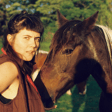
Finding God in the Compost Pile with Gareth Devenish
It’s colder than a penguin’s big toe here in Djaara Country, so we’re cosying up by the fire for a yarn with Gareth Devenish. I call Gareth the Snoop Dogg of permaculture, he calls himself a sovereign man walking in Country, subject to natural lore, seeking a connection with the cosmos. Call off your obligations for the next hour because Gareth’s crackling mix of irreverence and truth telling is something really special.
🔥 How to yarn
🔥 Why land ownership is a furphy
🔥 Native vs. exotic trees and colonial malaise
🔥 What is our responsibility to Country?
🔥 Nomadic agriculture
🔥 Quantum physics, free will and a post-truth era
🔥 Useful jobs in the time of AI
🔥 Why peacemaking with first nations people should be our #1 priority
🔥 Pay the rent!
🔥 Finding god in the compost heap
🔥 Does consciousness even exist?
🔥 Tips for planting and growing healthy trees
🔥 The best way to learn new skills
🔥 The scars which make us beautiful
🧙♀️ LINKY POOS
Gareth’s tree nursery ~ The Farm Tree Nursery (ships around Aus!)
Gareth’s email ~ garethdevenish@gmail.com
🧡 Support Reskillience on Patreon (plz don’t use the app it takes a fee, go desktop) 🧡



















